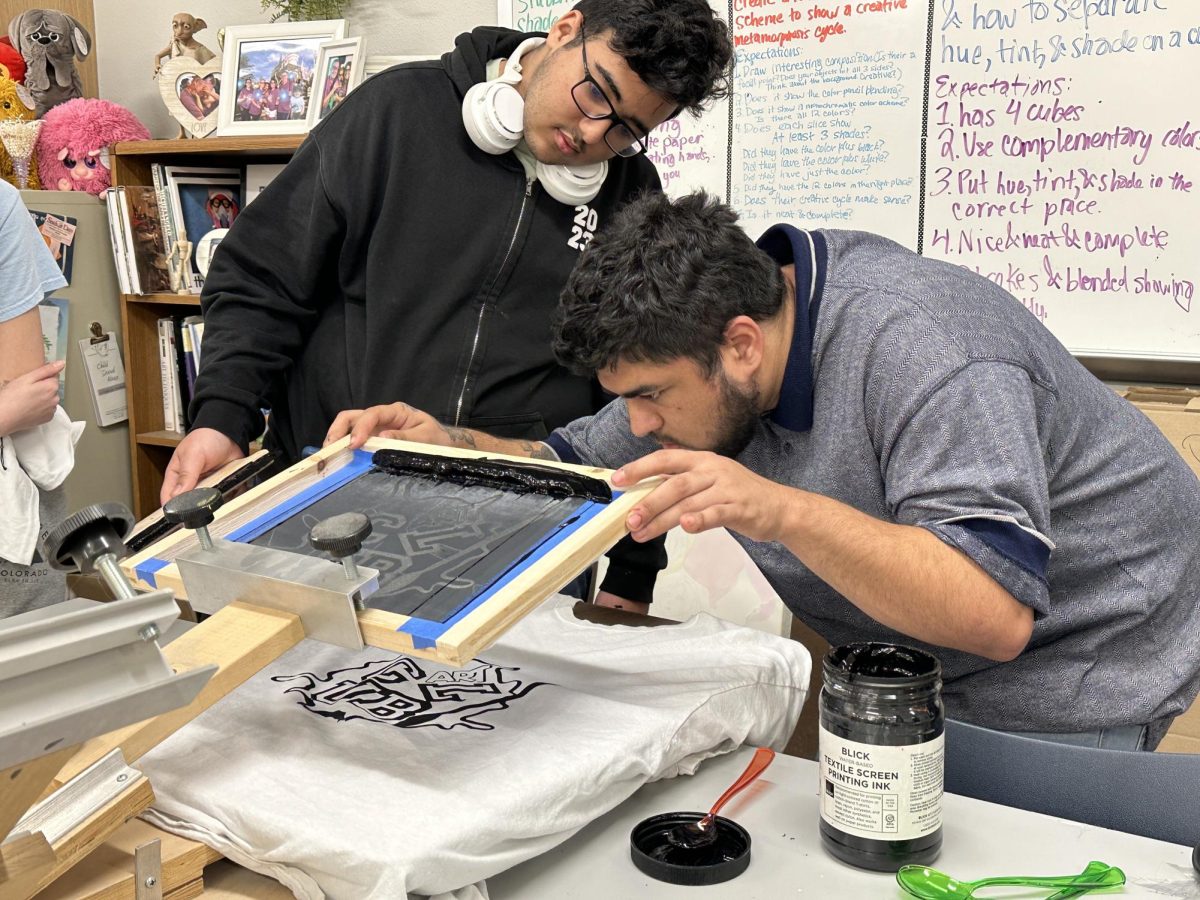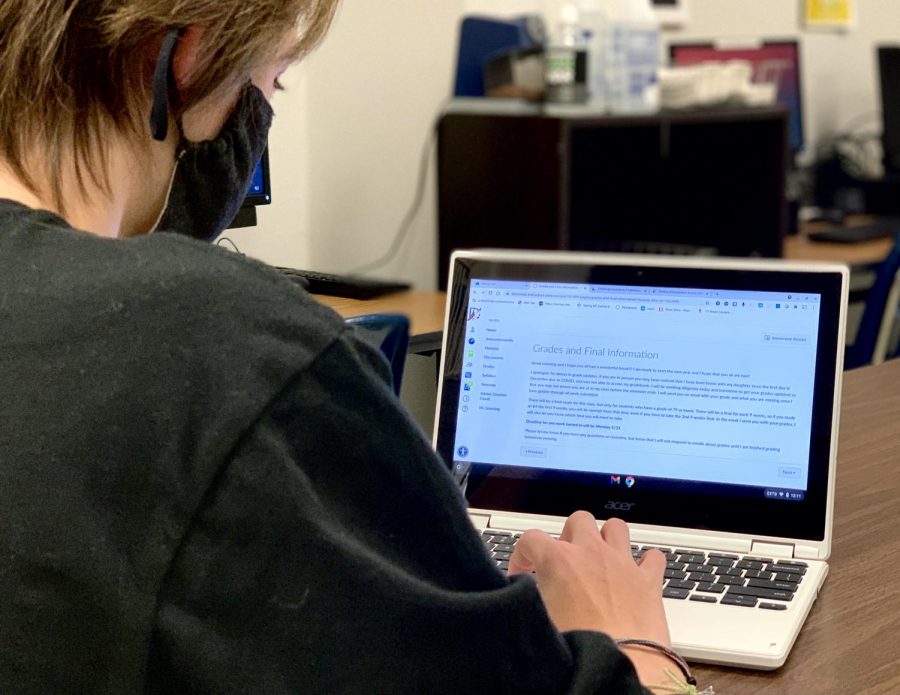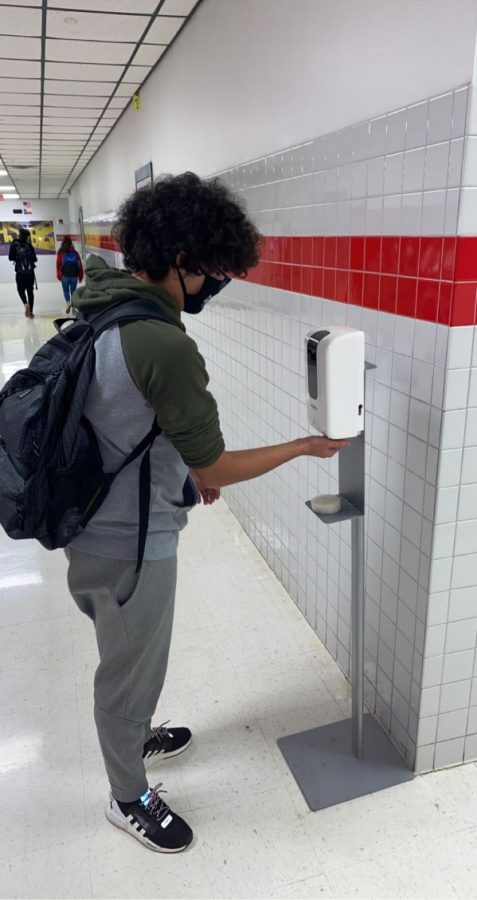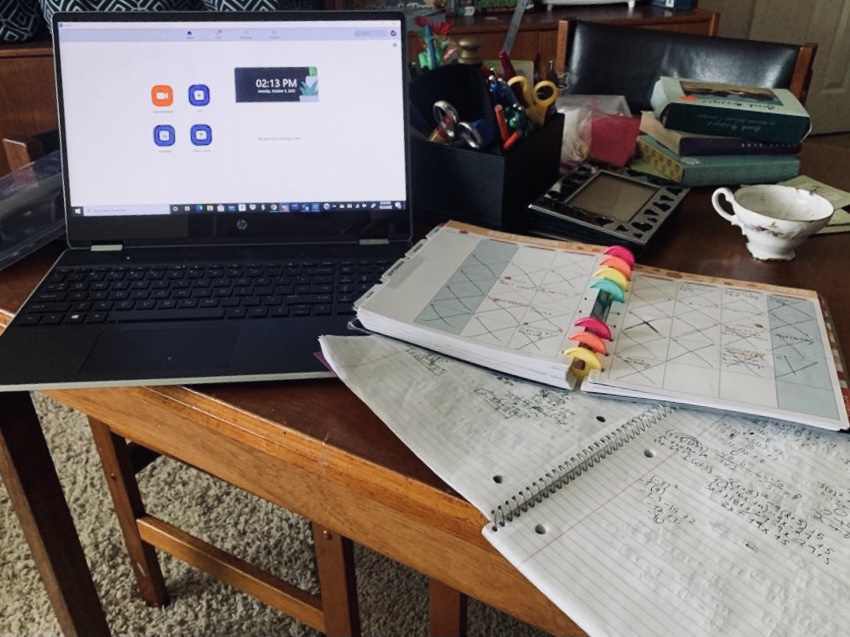Dare to go digital?
How to succeed while online learning
2020 hasn’t been what anyone expected it to be. In fact, it’s been pretty much the opposite. In March of the 2019-2020 school year, school was shut down and students were forced to do online learning. For the start of this year, the school has taken a mixed approach where some students are hybrid learners, attending school two or three times a week, while others are Connected Learners, who only do online classes.
Now, the universal struggle for students is learning how to keep a schedule, turn in assignments, and communicate with teachers all while being at home. Although this learning method may be new, it is possible to succeed with these 10 tips for digital learners.
1. Have an Agenda
The best tip that can be offered is having an agenda, also known as a planner. Agendas allow for a place where tasks can be easily organized, making them easier to complete. Any standard 2020-2021 agenda should work for the purpose of keeping track of schoolwork. Write down any and all assignments as soon as you get them in the space for the day they’re assigned and the day they’re due. In addition, mark any upcoming quizzes and tests, preferably in a distinguishable color, like red, to make them stand out. Make a to-do list of assignments and tasks that need to be done everyday and cross them off as they’re completed. In order to make keeping an agenda successful, check it every evening to see that all assignments have been completed, and check every morning to see what to expect throughout the day.
2. Set Alarms and Stick to the Schedule
It’s easy to forget that classes have set times, and it may be hard to figure out when to wake up for class when you’re at home all day. Remember to set alarms for the start and end of every class period to mimic the real bell schedule. These alarms are beneficial for keeping track of when to switch from one set of assignments to another. Only work on assignments for the current class block, unless all of the assignments have been completed. For example, while in Block A2 work on assignments for A2. If all assignments for that class have been completed, go back and work on previous assignments from the class before, or work ahead for other classes. However, if the time comes for A3 and all A2 assignments haven’t been completed, it’s time to stop working on them and focus on A3 assignments. It may be tempting to keep working on A2 assignments, but it can also push you to fall even more behind. This method enhances productivity on assignments as well because it offers “brain breaks” from one subject while switching gears to another.
3. Appetite
During this weird period of online learning, it’s easy to forget to eat or to eat too much. There are no real assigned lunch times for connected learners, and breakfast may be easily forgotten especially when you wait to wake up until the last minute before classes. On the other hand, there’s no more rules about not eating snacks in class either, since you’re in the comfort of your own home. However, not eating or overeating is not a habit that anyone should be getting into. The easiest way to remember to eat is to set an alarm for your assigned lunch times, and when you normally would if you were at school. If you need to eat breakfast right after waking up, it’s best to eat something light, like fruit or toast, rather than wait because it makes it easier to forget to eat breakfast altogether. One way to keep snacking to a minimum, is to have one small snack during your second and fourth blocks, spacing them equally throughout the day. This way there’s a snack to hold you over until lunch, and another snack to hold you off until the end of the school day.
4. Keeping Track of Assignments
One of the hardest things about online school is keeping track of assignments. It’s easy to just look at the dashboard in Canvas, or the to-do list for each class, but it’s really important to know that assignments that don’t have a due date attached to them will not show up in either of these places. The best way to see all assignments is to go to the ‘Modules’ tabs and scroll down to see all assignments. Be sure to open up every new module and read it, because sometimes assignments can be hidden inside modules that aren’t labeled as assignments. Other places to check for assignments are the class’s syllabus, weekly lesson plans and any announcements the teacher posts. So long as you keep on top of the majority of your assignments, teachers may be more understanding if a hidden assignment doesn’t get turned in on time.
5. Communicating with Teachers
Another struggle with connected learning is the fact that students may rarely have any contact with their teachers. This means that any questions or problems that a student would normally be able to ask or notify the teacher about in person, have to be asked and sent digitally either through email or through the Canvas inbox. When messaging a teacher digitally, it’s important to remember to be respectful. Be sure to start off with a proper salutation such as: hello, dear, good morning. The first couple of times you email a teacher, you should introduce yourself using your first and last name and include which block and class you have that teacher. Follow up with a brief explanation of what the email is addressing and describe the situation or problem. Make sure to clearly state the question or issue that the teacher should address. You should thank the teacher for their time, and sign of with your first and last name. Keep in mind that teachers are busy with both in-person and online students, so they may take a while to respond. During this time, continue to work on any assignments that can be done without the teacher’s help. If the teacher still hasn’t responded in a timely manner, send a follow-up politely asking them if they received your email.
6. Responsibility
During this online learning period, it’s important to remember that responsibility for getting assignments still lies on the students’ shoulders. While teachers are here to help guide students, answer questions, and teach lessons, completing assignments is still entirely up to the student. If there are any questions, technical problems or other issues, contact teachers immediately. Teachers do not know about any problems or questions until a student asks them. The best way to get help is to ask for it, but overall remember that assignments still need to be completed.
7. Stay Physically Active
Online school is very different from in-person schooling. Most notably, the fact that you no longer walk from one class to another is a huge physical change in your daily life. Because there are no longer passing periods, it’s easy to forget to stand up and move around. Every two hours or so, you should stand up and do a couple simple stretches to return blood to your limbs. Take a walk to the kitchen and get a snack, or go for a bathroom break, but remember to get your blood flowing. Not only will this prevent sore muscles, it also helps your brain function properly.
8. Pick a Good Environment
The most important thing to have while online learning is a proper environment. Make sure to pick a quiet and comfortable place to learn where studying can be done without any interruptions from younger siblings or parents. Make sure there’s a stable place for computers, notebooks, and writing utensils, and have a comfortable chair. The cool thing though is that your environment can be switched up every once in a while. Sit outside if the weather allows for it, there’s no rules against that now. You are free to study in whatever environment you deem appropriate. Just make sure it’s a place that allows you to focus and be productive.
9. Don’t Forget to Sleep
It’s tempting not go to sleep at a reasonable time when you don’t have in person classes the next day, but staying home doesn’t mean your brain doesn’t need sleep. High school aged students should get anywhere from 8 to 12 hours of sleep. Otherwise, it’s possible for you to fall asleep when you should be online for class, especially if you’re studying in bed. The best way to prevent being overly tired is to actually sleep.
10. Make Things Fun
Perhaps the hardest part for some students is the fact they are isolated from others. It’s easy to start feeling alone and to let those thoughts impact your mental health. This is easy to prevent by making your learning environment fun. Play music while you’re studying to fill the silent space. Decorate your learning area to stimulate the creative side of your brain. Maybe even FaceTime other friends that are also learning at home to have someone to talk to. The coolest thing about online learning is that there are no longer rules against any of those things. Take this time without those rules to explore and make school fun.
The most important thing to remember is that everyone is new to this, and that while we may be alone, we’re alone together. Everyone’s a little stressed, even the teachers, so give everyone a break. Don’t stress, just do your best, and teachers will do their best to understand when things don’t go as planned. Everything will be okay, and someday we’ll all be walking the halls again, together.

Good evening ladies and gentlemen! My name is Izabella Grimaldo. I’m a junior that’s involved in orchestra council and journalism UIL. I enjoy reading,...






















